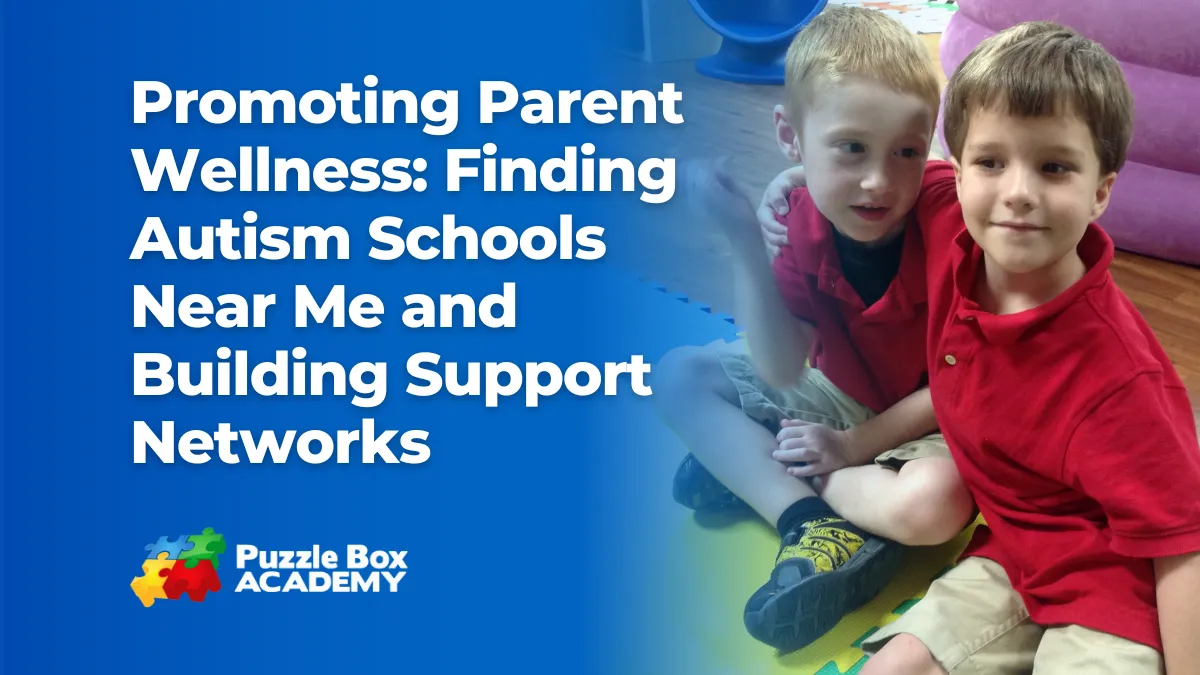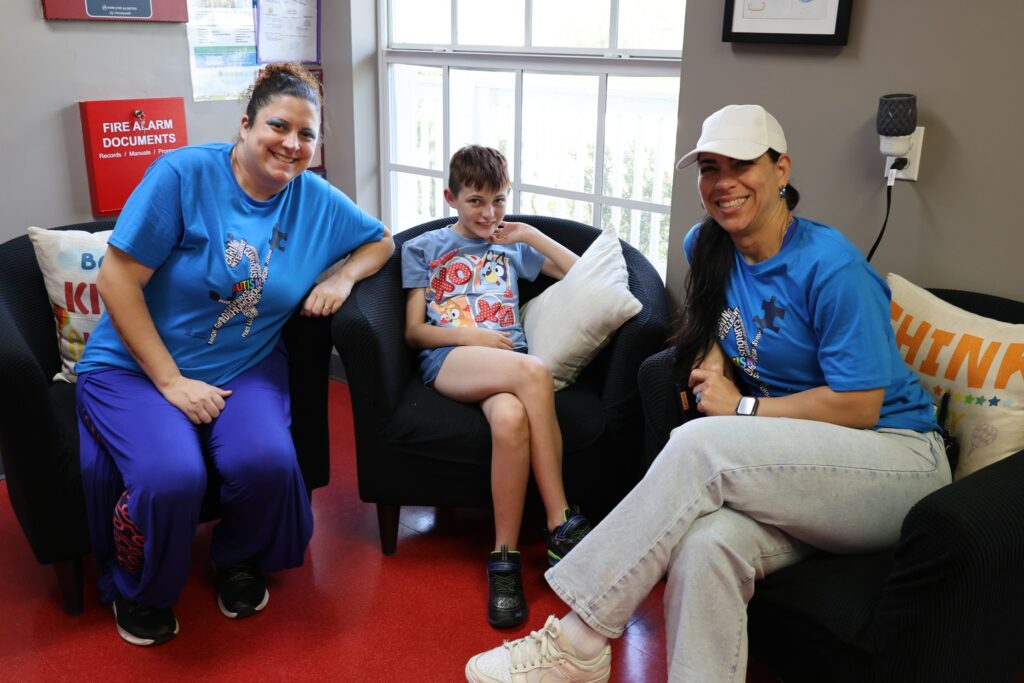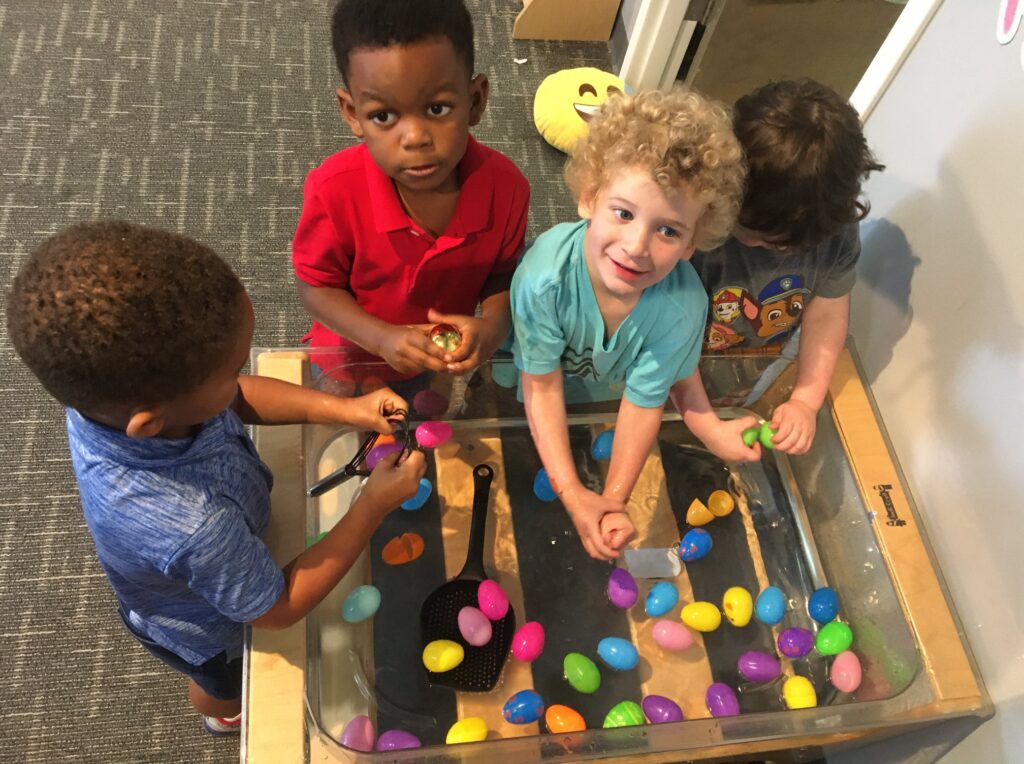Finding autism schools near me can be life-changing for parents seeking supportive, personalized education for their children. Many parents of children with autism face unique challenges and need not only educational resources but also a sense of community.
Families can ensure their child receives an education tailored to their needs by selecting a school dedicated to individualized learning and parent collaboration. Let’s explore how finding the right school and connecting with supportive networks can empower parents to create a nurturing environment at home and in the classroom.
Building Support Networks: Creating a Foundation for Success
Building support networks is essential for parents raising a child with autism. A community of understanding individuals can provide emotional relief and practical guidance. Here, we explore ways parents can build strong, reliable support systems to make their journey easier and more fulfilling.
The Power of Local and Online Support Groups
Support groups, whether in person or online, can be invaluable for parents. These groups offer spaces to connect with others who understand the particular challenges and joys of raising a child on the spectrum. They provide a platform for sharing adventures, discussing resources, and finding emotional support when needed.
In these groups, parents can explore various types of resources:
- Local Meetup Groups: Many communities offer in-person autism support groups where parents can connect face-to-face and attend meetings on autism care and development.
- Online Forums and Social Media: For those who prefer flexibility, online communities on platforms like Facebook or specialized forums offer 24/7 access to advice, shared experiences, and helpful tips.
- Hybrid Models: Some groups offer online and in-person options, allowing parents to choose what suits their schedule and comfort level best.
Engaging in these groups provides a sense of camaraderie and shared understanding that can significantly improve a parent’s day-to-day experience. Many parents find that simply knowing they are not alone can relieve stress and empower them to seek solutions to their challenges.
How Autism-Focused Schools Support Parent Connections
Autism-centered schools, like Puzzle Box Academy, often offer resources beyond academics by fostering community among families. Schools play a vital role in creating connections by organizing regular events, from family gatherings to educational workshops.
These schools frequently provide opportunities for families to interact and share resources:
- Family Resource Centers: Schools may set up spaces where parents can find autism-related materials, including books, tools, and lists of local services.
- Parent Workshops and Webinars: These educational sessions, often led by experts, cover topics like behavior management, self-care, and navigating the IEP process.
- School-Hosted Social Events: Family nights or picnics give parents a relaxed setting to bond with others who understand their journey.
Participating in school-organized gatherings helps parents stay informed, develop friendships, and learn from others who may be further along in their autism journey. Schools are a valuable resource for the child and the entire family’s well-being.
Leveraging Community Programs for Additional Support
Beyond schools and parent groups, many community-based programs are tailored to assist families of children with autism. These resources provide additional support layers, from recreational activities to therapeutic services.
Examples of community programs include:
- Recreational Activities: Programs like adaptive sports, music classes, and art therapy are available in many communities to provide socialization and skills-building opportunities.
- Therapeutic Services: Occupational therapy, speech therapy, and ABA clinics in the area can work alongside schools to help address specific developmental needs.
- Respite Care Services: Temporary care services give parents a break, allowing them time to rest and recharge, knowing their child is in capable hands.
Accessing these community resources helps families manage the demands of autism care more effectively, adding to the support network that can make a significant difference in their lives.
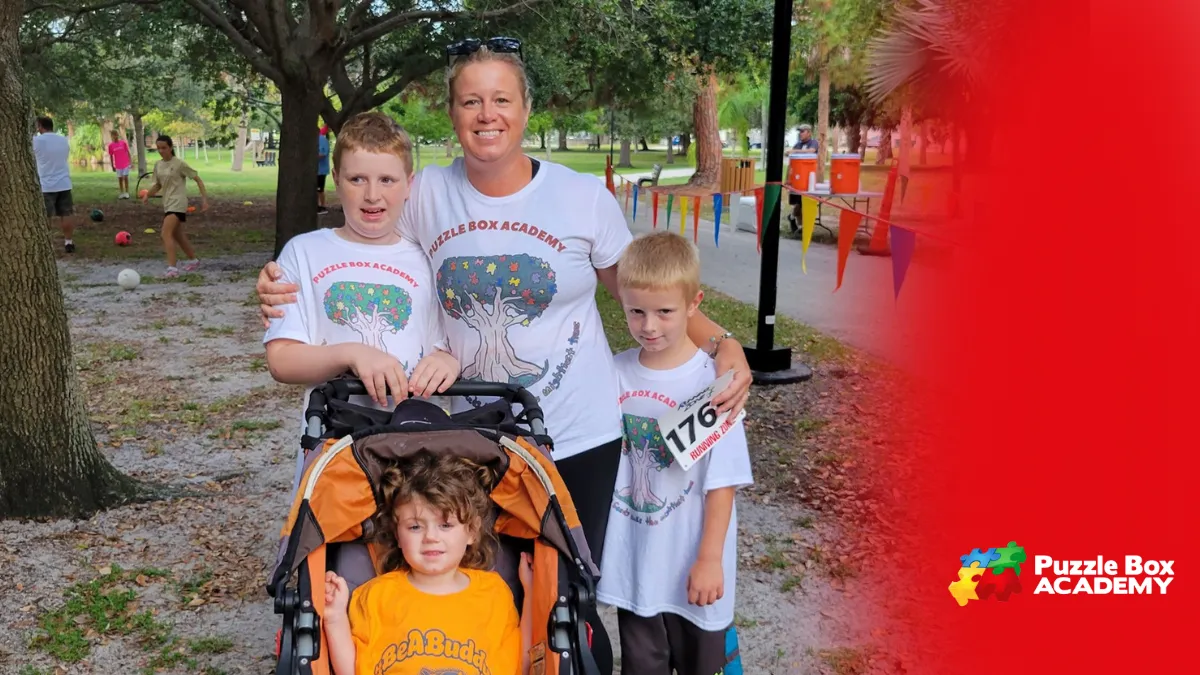
Prioritizing Self-Care for Parents: Why It Matters
Balancing caregiving responsibilities with personal well-being is often challenging for parents of children with autism. Yet prioritizing self-care for parents isn’t a luxury—it’s essential. Caring for yourself can lead to more energy, patience, and resilience, all contributing to a healthier, happier family life.
The Impact of Caregiver Burnout on Families
Caregiver burnout is a common, often overwhelming experience among parents navigating the demands of raising a child with autism. When physical and emotional exhaustion sets in, it can affect the entire family dynamic, leading to stress, tension, and even health problems. Preventing burnout is crucial for the parents and children’s well-being, as children thrive best when their caregivers are balanced and well-supported.
To prevent burnout, consider these self-care essentials:
- Daily Downtime: Set aside 10–15 minutes each day for an activity that relaxes you, like reading or listening to music, to recharge.
- Sleep Routine: Prioritize a steady sleep schedule, as restful sleep is inevitable for physical and mental energy.
- Healthy Boundaries: Practice saying “no” to non-essential commitments that drain your energy, preserving it for what truly matters.
Taking small steps to manage daily stressors can lead to meaningful improvements in your mood and stamina, helping you navigate the unique demands of parenting.
Building a Supportive Circle of Family and Friends
A robust support system of friends and family can provide emotional and practical assistance. Loved ones can lend a hand when things feel overwhelming, allowing parents to take a much-needed break or enjoy social interactions outside of caregiving.
Here are some ways to involve those close to you:
- Schedule Regular Check-Ins: Ask a trusted family member to check in with you weekly, offering a consistent chance to share your thoughts and feelings.
- Delegate Tasks: To ease your load, don’t doubt to ask for help with daily tasks, such as errands or meal prep.
- Plan Respite Days: Schedule regular “respite days” where family or friends can step in, giving you a full day or evening off.
Involving loved ones lightens your workload and reinforces that you’re not alone in this journey. Their support can allow you to take time for yourself without feeling guilty or overwhelmed.
Using Community Resources for Self-Care Support
In many areas, resources are available to help parents prioritize their well-being. These may include therapy options, support groups, and childcare services specifically designed to give parents of children with autism time to recharge.
Consider exploring resources like these:
- Parent Support Groups: Local and online groups offer a safe space to discuss obstacles, celebrate victories, and gain advice from those with similar experiences.
- Counseling Services: Therapy can be an effective tool for managing stress and processing emotions, equipping you with strategies to handle caregiving’s emotional aspects.
- Respite Care Providers: Specialized providers offer temporary care for children with autism, giving parents opportunities to take extended breaks when needed.
These resources can help create a balance, ensuring parents can access the mental and emotional support they need. Investing time in self-care with the support of these services enables parents to approach their caregiving role with renewed energy and focus.
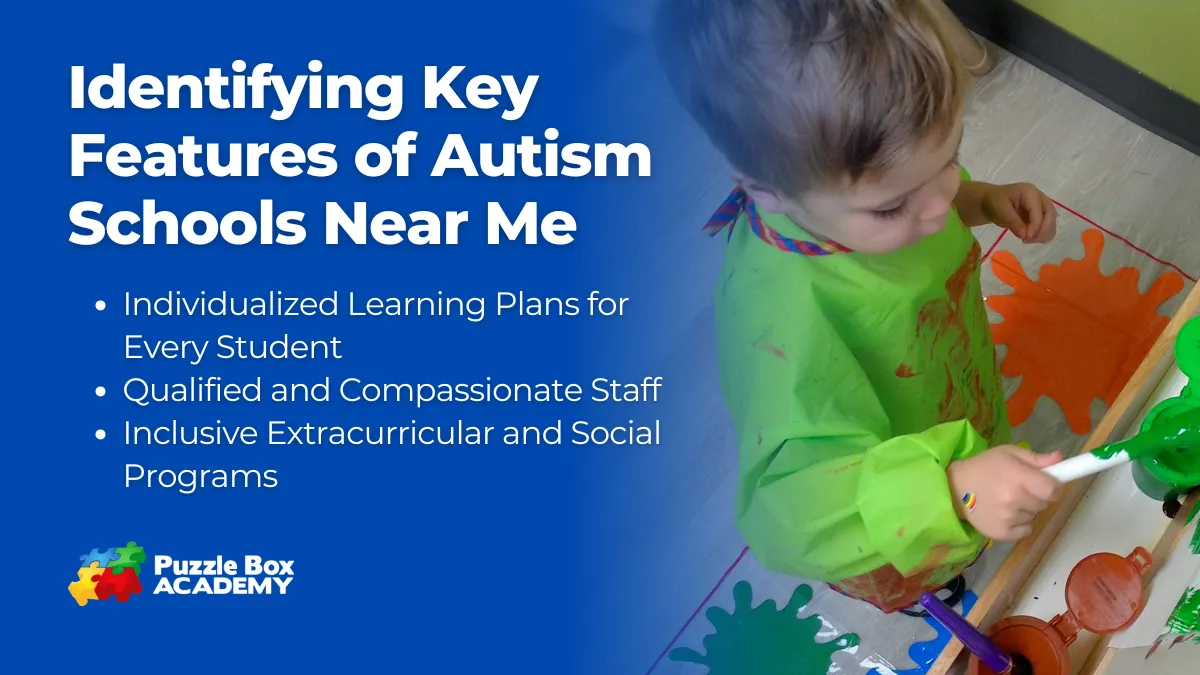
Identifying Key Features of Autism Schools Near Me
When choosing an autism school, parents want to ensure the environment is nurturing and equipped with specialized resources supporting their child’s unique needs. Selecting a school that prioritizes tailored learning, experienced staff, and inclusive programming can significantly impact a child’s educational experience.
Individualized Learning Plans for Every Student
One of the most critical features of a quality autism-focused school is an emphasis on individualized learning. Autism affects each child differently, so an approach that considers a student’s strengths, challenges, and pace of learning is vital.
Individualized learning plans (ILPs) are customized to each student’s needs, ensuring they receive support that aligns with their academic and developmental goals. These plans often include specialized therapies, targeted educational goals, and specific behavioral strategies that cater to the child’s unique abilities.
Look for schools that provide these key ILP components:
- Assessment-Based Goals: Plans based on thorough assessments of a child’s skills, preferences, and needs.
- Flexible Curriculum: A curriculum that can adapt to different learning approaches and speeds, allowing students to progress at their own pace.
- Collaborative Input: ILPs that include feedback from teachers, parents, and therapists to create a well-rounded support system.
A school that invests in ILPs demonstrates a commitment to each child’s growth, fostering a sense of accomplishment and encouraging continued progress.
Qualified and Compassionate Staff
An autism school’s staff should be highly qualified and dedicated to understanding and supporting students on the spectrum. Teachers and support staff with experience in autism education bring essential skills to the classroom, helping students reach their full potential. Compassionate staff members create an accepting and safe environment, giving students the confidence to express themselves and engage with the curriculum.
When evaluating a school, consider the following staff-related aspects:
- Specialized Training: Look for educators trained in Applied Behavior Analysis (ABA), sensory integration, and other autism-specific methodologies.
- Supportive Teaching Assistants: Teaching assistants who work alongside teachers can provide additional guidance and one-on-one attention.
- Continuous Professional Development: Schools that invest in ongoing training for staff members demonstrate a commitment to staying updated with best practices in autism education.
Experienced, compassionate staff can positively impact a child’s school experience, helping them develop academically and socially.
Inclusive Extracurricular and Social Programs
A well-rounded autism school doesn’t just focus on academics; it also offers extracurricular activities that build social skills, self-esteem, and independence. Programs like art, music, sports, and social clubs allow students to explore interests, connect with peers, and build confidence in new settings. These activities are often adapted to meet the diverse needs of autism students, creating an inclusive environment where everyone can participate and thrive.
Essential elements to look for in extracurricular programming include:
- Adapted Sports and Recreation: Programs designed with adjustments for different skill levels, allowing every student to engage safely and successfully.
- Social Skill Development: Activities focused on communication, teamwork, and relationship-building, helping students improve interpersonal skills.
- Creative Outlets: Art and music classes that encourage self-expression and creativity, supporting both emotional and cognitive growth.
A school emphasizing these inclusive programs helps students develop life skills for beyond the classroom, preparing them for real-world interactions and fostering a sense of community.
Conclusion
Choosing the right autism school and building a solid support network can enrich children’s and parents’ journeys. A school with individualized learning plans, compassionate staff, and inclusive programs provides an empowering environment where children with autism can grow academically, socially, and emotionally. Meanwhile, prioritizing self-care and connecting with support networks allows parents to recharge, celebrate successes, and approach each day with renewed energy and optimism. Together, these elements build a foundation that supports each child’s unique path and strengthens the entire family.
Ready to take the next step? Contact Puzzle Box Academy to learn how we can support your child’s educational journey. Visit our Contact Page or call us at 321-345-0861 today! Let’s build a brighter future together.

